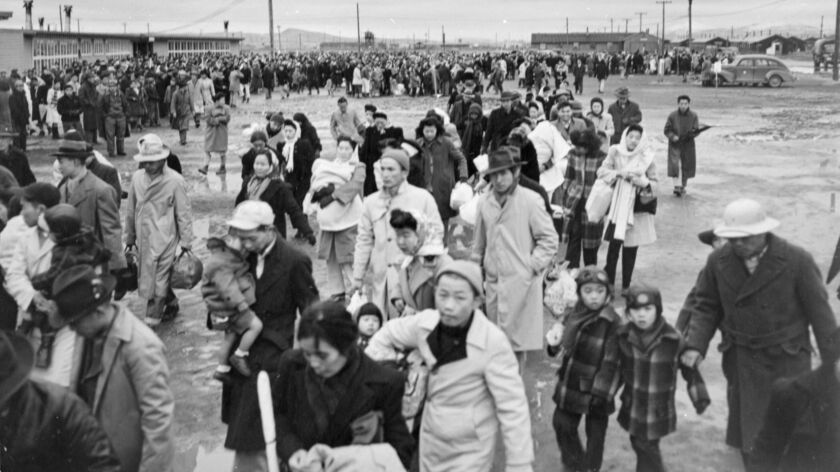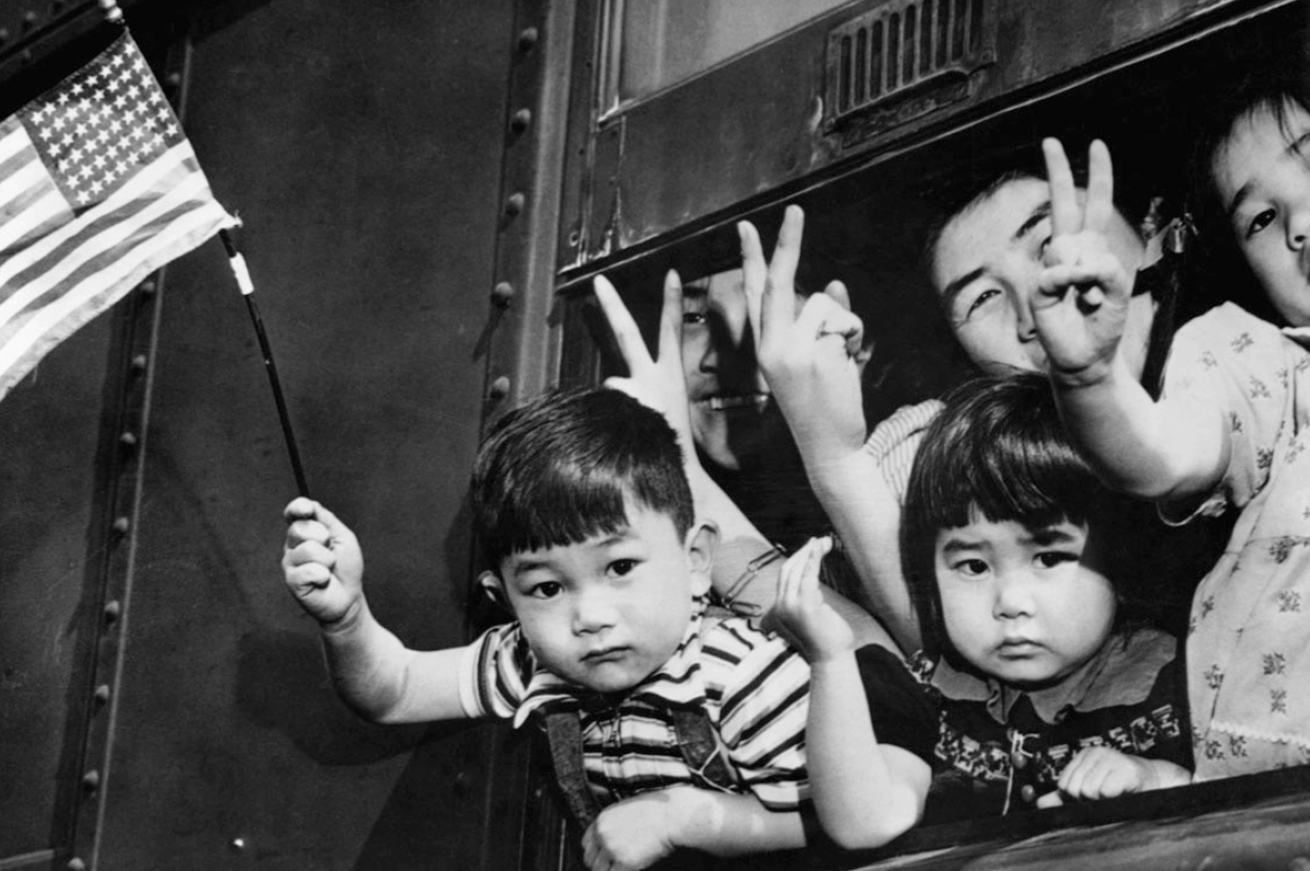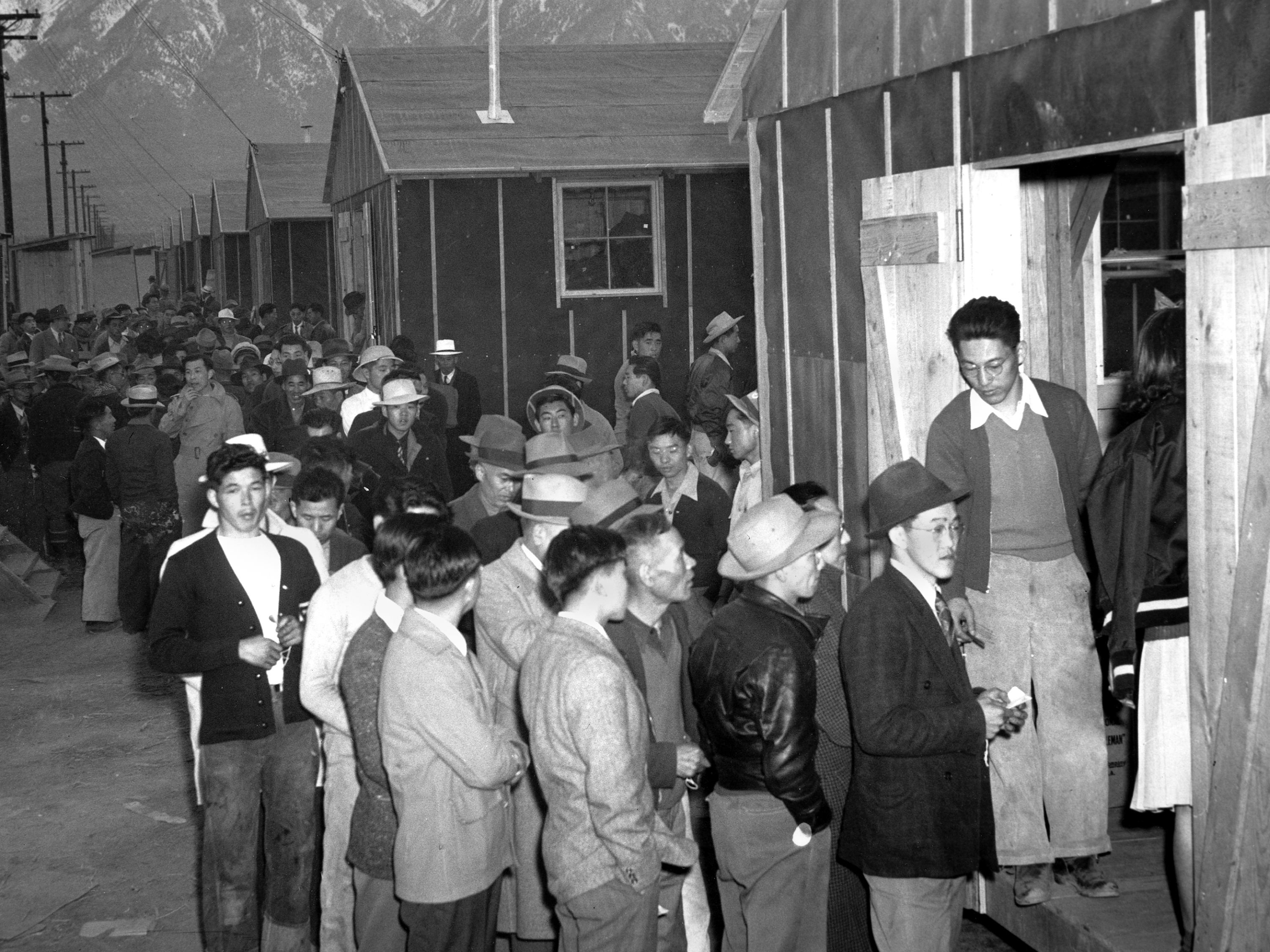The United States placed Japanese Americans into internment camps during World War II because of fear that those with ethnic and cultural ties. Japanese Americans began to feel that other Americans were becoming upset with them.
 Lessons From A Japanese Internment Camp
Lessons From A Japanese Internment Camp
These were like prisons.

What was japanese internment. It affected hundreds of thousands of people of Japanese descent whether they were citizens or not. That action was the culmination of the federal governments long history of racist and discriminatory treatment of Asian immigrants and their descendants that had begun with restrictive immigration policies in the. Its mission was to take all people of Japanese descent into custody surround them with troops prevent them from buying land and return them to their former homes at the close of the war.
Japanese American internment the forced relocation by the US. It came down to the forced relocation of the Japanese Americans to the specially created zones so that the threats they were associated with would be addressed and the further escalation of war would be prevented. The Japanese Internment was one of such instances.
Japanese American internment happened during World War II when the United States government forced about 110000 Japanese Americans to leave their homes and live in internment camps. The first impact was that the lives of the Japanese were interrupted. History but it is often overlooked by many.
The incarceration of those placed in camps was affected mentally and it caused many. They had to sell their businesses and their homes. There were several effects of the Japanese being in internment camps.
Its mission was to take all people of Japanese descent into custody surround them with troops prevent them from buying land and return them to their former homes at the close of the war Japanese American internment. All of the camps started in the year of 1942 and ended near late 1945. 62 of the internees people in the internment camps were American citizens.
Roosevelt legalized the internment of Japanese within the states with Executive Order 9066 which allowed the military to find and make certain areas into internment camps or exclusion zones for the Japanese all across the US. Click to see full answer. Japanese American internment happened during World War II when the United States government forced about 110000 Japanese Americans to leave their homes and live in internment camps.
Following these atrocities many reparations toward Japanese Americans were offered. Many Americans were furious and some blamed all Japanese people for what had happened at Pearl Harbor. No matter if you were a child or veteran or an American citizen you were put in internment camps.
Internment of people of Japanese descent during the 1940s was a major event in US. The Japanese ancestry were put into the internment camps. It is commonly believed that the key factor behind making this decision was race.
What was the purpose of Japanese internment. The history of the Japanese Internment camps stains the reputation of America. RemovalRemoval of Japanese Americans from Los Angeles to internment camps 1942.
This act provided all Japanese citizens who were interned with 20000 in reparations and condolences. Government of thousands of Japanese Americans to detention camps during World War II. Removal of Japanese Americans from Los Angeles to internment camps 1942.
Of Japanese Internment The US. The Civil Liberties Act was passed in 1988. President Franklin D.

 75 Years Later Americans Still Bear Scars Of Internment Order The Two Way Npr
75 Years Later Americans Still Bear Scars Of Internment Order The Two Way Npr
 What Japanese American Internment Camps And Family Separations Have In Common Quartz
What Japanese American Internment Camps And Family Separations Have In Common Quartz
 Japanese American Internment Definition Camps Facts Britannica
Japanese American Internment Definition Camps Facts Britannica
 At Least During The Internment Are Words I Thought I D Never Utter Foreign Policy
At Least During The Internment Are Words I Thought I D Never Utter Foreign Policy
 Japanese Internment Camps Wwii Life Conditions History
Japanese Internment Camps Wwii Life Conditions History
 California Plans To Apologize To Japanese Americans Over Internment The New York Times
California Plans To Apologize To Japanese Americans Over Internment The New York Times
 A Lesson On The Japanese American Internment Zinn Education Project
A Lesson On The Japanese American Internment Zinn Education Project
 At 92 A Japanese American Reflects On The Lessons Of Internment Camps Npr
At 92 A Japanese American Reflects On The Lessons Of Internment Camps Npr